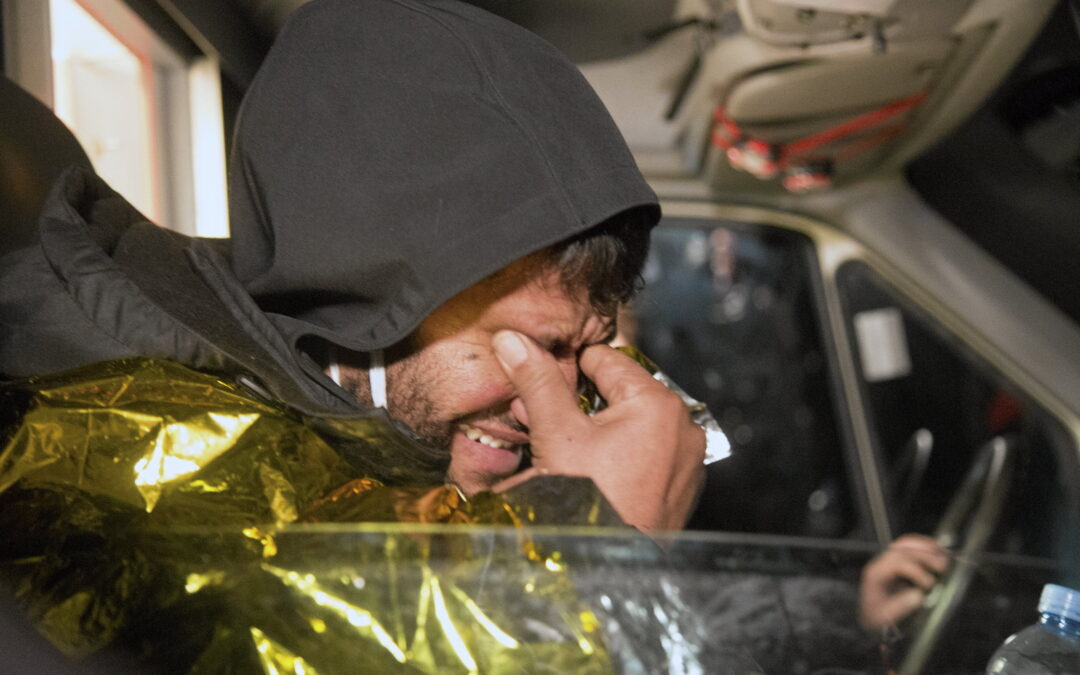The Polish government has rejected an offer from the Catholic church to mediate on behalf of a group of volunteer medics who want to provide care for people crossing into Poland from Belarus, but have been denied access to the border. The interior minister says the offer is unnecessary as medical treatment is already provided.
The group of volunteers, known as Medics on the Border (Medycy na Granicy), have been helping people – mostly from the Middle East, Asia and Africa – near the border. Conditions there have been worsening as winter approaches, and at least seven border crossers have been found dead in Poland in recent weeks.
However, the medics have not been permitted to access the area directly along the border itself, which has been placed under a state of emergency that bars non-resident civilians from entering.
On 15 October, Archbishop Wojciech Polak, the primate of Poland, wrote to the interior minister, Mariusz Kamiński, asking for “urgent talks” on allowing the medics access to the border. He offered to mediate on their behalf.
Polak noted that “the situation of refugees on the eastern border is becoming more and more difficult”. He said that the medics’ “activities are humanitarian” and would “strengthen the work of the border guard” in responding to the crisis.
“The fact that the refugees are being used brutally in a political struggle, as is so often emphasised by the government, does not absolve us from respecting the rights and dignity of every human being, from thinking of every human being as our neighbour,” he added.
However, on Sunday, Medics on the Border revealed that they had been informed by the archbishop that, in a letter dated 28 October, Kamiński had rejected the proposal.
The interior minister, according to Polak, said that allowing the medics entry to the border area would put additional strain on the authorities, who would have to ensure their safety. He also noted that officials on the ground are already providing medical care where necessary.
The archbishop told Medics on the Border that the church remains ready “to support all mechanisms of helping refugees”. He expressed hope that, “by acting in solidarity, in the name of humanity and in the spirit of good will, we are able to help those whose health and life are at risk, without compromising the security of our borders”.
Szef MSWiA odpisał abp. Polakowi. Potwierdził, że nie jest zainteresowany rozmową z nami.
Przedstawiciele grupy koordynującej naszą akcję – Jakub Sieczko, Kaja Filaczyńska, Marcin Janik spotkali się z Komendantem Podlaskiego Oddziału Straży Granicznej płk. Andrzejem Jakubaszkiem
— Medycy Na Granicy (@medycynagranicy) October 31, 2021
Medics on the Border also revealed on Sunday that they had held a 45-minute meeting with the commander of the border guard in the Podlasie province on Poland’s border with Belarus.
“We received a negative answer,” they wrote. “The commander informed us that at present it was impossible for our group to enter the area of the state of emergency.”
Poland’s Catholic episcopate last month issued an appeal calling on the authorities to “prioritise medical and humanitarian aid” for the thousands of people who have been seeking to cross from Belarus. It also called on Poles not to “stigmatise arrivals” and to “welcome strangers”.
The number of attempts to illegally cross into Poland from Belarus recorded by Polish border guards:
– August: 3,500
– September: 7,700
– October: 16,800By comparison, in the whole of 2020 the figure was just 120https://t.co/IVOPa4puQw
— Notes from Poland 🇵🇱 (@notesfrompoland) November 2, 2021
Main image credit: Agnieszka Sadowska/ Agencja Wyborcza.pl

Daniel Tilles is editor-in-chief of Notes from Poland. He has written on Polish affairs for a wide range of publications, including Foreign Policy, POLITICO Europe, EUobserver and Dziennik Gazeta Prawna.



















